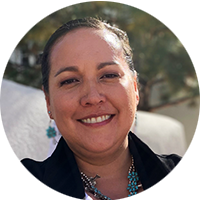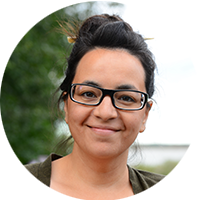Outputs
Hearing Indigenous Voices During the COVID-19 Pandemic Symposium
In June 2023, CIEDAR hosted a dialogue session, Hearing Indigenous Voices During the COVID-19 Pandemic, highlighting the experiences and triumphs of Indigenous Peoples on Turtle Island and around the world. The hybrid dialogue session with researchers based in Canada, the United States, and New Zealand included presentations and discussions about lessons learned on conducting research in Indigenous communities and about Indigenous resilience during the pandemic.
The event was presented in partnership with UBC Health After 2020 Dialogue Session, UBC Sociology, UBC Indigenous Land-Based Health, Wellness, and Education Research Cluster, and CoVaRR-Net EDI&I.

CoVaRR-Net Spring 2023 Meeting
CIEDAR partnered with the Equity, Diversity, Inclusion & Indigeneity (EDI&I) team to offer a training workshop on engaging with Indigenous communities and partners. In addition, CIEDAR Lead Dr. Kimberly Huyser was part of the breakout session called “Data and Reagent Sharing,” during which she spoke about the importance of Indigenous data sovereignty.
CIEDAR presented three posters at the Spring 2023 Meeting in the applied science category.
Wastewater needs assessment & infographic
CIEDAR published a one-page summary to educate Indigenous communities and academics on what is needed for Indigenous Peoples to sustainably participate in wastewater surveillance.
If you’re interested in wastewater surveillance in your community, please contact the director of CoVaRR-Net’s Wastewater Surveillance Research Group, Robert Delatolla, Robert.Delatolla@uottawa.ca.

Social determinants of health and COVID-19 case incidence study across Canada
Through the COVID-19 pandemic, Canada collected data on SARS-CoV-2 infections by health region but did not collect individual demographic data. Thus, it left a gap in understanding the link between social factors and disease occurrence. This paper explores the social factors (i.e., household income, household composition, minority status/experiences of racism, housing and transportation, and the number of First Nations communities) that have influenced Indigenous Peoples’ health during the pandemic across Canadian health regions. The findings illuminate how many social factors are the result of systemic racism that place Indigenous Peoples at an increased risk for COVID-19.

Webinar on health equity
CoVaRR-Net’s CIEDAR hosted a virtual panel called “Indigenous Peoples and the Canadian Research Ecosystem Webinar” in collaboration with Genome Canada, the Global Alliance for Genomics and Health, and CanCOGen on December 6, 2021. Panelists included Dr. Jessica Kolopenuk, Taylor Morriseau, and Leona Star, and the panel was moderated by CIEDAR Lead Dr. Kimberly R. Huyser.
The webinar covered issues specific to engaging Indigenous populations in research such as open data/open science, data sovereignty and appropriate
Webinar on vaccine hesitancy
CIEDAR Lead Dr. Kimberly R. Huyser participated in this webinar hosted by the UBC Vaccine Literacy Club entitled “Vaccines 101: The Role of Vaccines in the COVID-19 Pandemic,” along with fellow CoVaRR-Net Pillar leads Dr. Jen Gommerman, Dr. Anne-Claude Gingras, and Dr. Nazeem Muhajarine.
Dr. Huyser presented emerging understandings of the COVID-19 vaccine rollout, vaccination rates and vaccine hesitancy among Indigenous Peoples of Turtle Island. To overcome vaccine hesitancy within Indigenous communities, it is important to address systemic barriers that Indigenous communities encounter within the dominant healthcare system.
Current Projects

Hearing Indigenous Voices survey
The Hearing Indigenous Voices survey is a binational survey of Indigenous individuals who live across Turtle Island (North America). The survey assessed Indigenous persons’ experiences in the pandemic, knowledge of the pandemic and its changes, vaccine hesitancy, resources used for mental health concerns, and willingness to engage with research. Analysis is ongoing and has already produced valuable findings on Indigenous Peoples’ most frequent motivations to seek vaccination (e.g., personal health and safety, protecting vulnerable community members and Elders) and avoid vaccination (e.g., general lack of desire, mistrust of the safety and effectiveness of the vaccine), as well as where they accessed vaccines (e.g., vaccination clinics embedded in community settings).
STATUS:
Data was collected in October 2022. Preliminary findings have been presented in Aotearoa (New Zealand), the CoVaRR-Net Spring 2023 Meeting, and the Hearing Indigenous Voices Symposium. A final report will be prepared by Spring 2024.

Thrivance on Turtle Island
Thrivance on Turtle Island after the COVID-19 pandemic (TOTI) expands CIEDAR’s Hearing Indigenous Voices survey. Over two years, CIEDAR will develop and distribute a culturally-appropriate survey to Indigenous Peoples across Canada. TOTI will focus on improving pandemic preparedness by:
- Examining and highlighting Indigenous strengths and resilience;
- Better understanding how Indigenous Peoples use culture during health crises;
- Looking at how culture increases Indigenous resilience;
- Studying how better policies can be designed for future pandemics.
Partner with us
Central to CIEDAR’s work is a commitment to building strong partnerships








Interested in partnering with us? Contact tamara.chavez@ubc.ca
















Follow CIEDAR